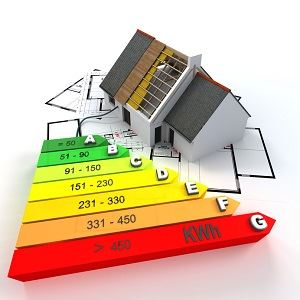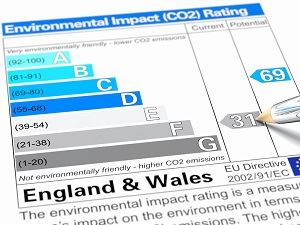Do Holiday Homes Need EPCs?
An Energy Performance Certificate (EPC) is a guide that shows how efficiently a property uses energy, the cost of running the property and recommendations of how to improve the energy efficiency of the property. It must be provided whenever a home is let to a new tenant.

Does my holiday home need an EPC?
You may need an EPC for your holiday home depending on: what type of property it is; whether you rent it out; and how long you rent it out for each year.
If your holiday home is rented out for a combined total of 4 months in any 12 month period, you are required to have an EPC. This is not the case with a property that is occupied by a tenant before 1 October 2008 and continues to be occupied by the same tenant. This excludes caravan, tents, and mobile homes.
If the Trading Standards department of your local authority receives a complaint that an EPC has not been provided they can impose a £200 penalty charge on you for each breach.
How is an EPC calculated?
An EPC measures two things about a property:
-
Its energy efficiency rating, which is based on how much the home would cost to run. However, this may be calculated using out of date fuel prices which do not therefore reflect what it would currently cost to run the property
-
Its environmental impact rating, which is based on how much carbon dioxide is released into the environment due to the property's running

How is an EPC graded?
An EPC is graded based on factors such as age of property, construction, heating, lighting and insulation. Ratings are standard so that different properties can be compared easily.
Grades are allocated on a scale ranging from A (most energy efficient/lowest environmental impact) to G (least energy efficient/most environmental impact). The average UK property has an EPC rating of D or E.
How long is my EPC valid for?
EPCs are valid for 10 years and can be reused an unlimited number of times during that period. If an additional EPC is carried out within that ten year period, previous EPC is invalidated.
How can I get an EPC for my property?
An EPC assessment must be carried out by an accredited Domestic Energy Assessor (DEA). As a landlord, you can apply to become an accredited assessor.
Each EPC has a unique number which will be stored on a national register by the Energy Assessor. You can download copies by using this reference number, shown on the top right hand side of your certificate.
What happens during an energy inspection?
During an energy inspection, an assessor will inspect each room of the property. An energy assessment usually takes up to an hour - but can take more or less time, depending on the size of the property. Your assessor will need access to all the rooms, the boiler and the loft. They may need to take photographic evidence of items such as heaters and meters.
How can I prepare for an energy assessment?
In order to assist your assessor in carrying out your assessment as quickly as possible, you may prepare the following information:
- When the property was built
- Whether or not your property has been extended and if it has - when
- If it has been double glazed, any certificates that prove this
- Whether the walls have been insulated and if so, whether this is cavity, internal or external insulation
- When your boilers/hot water cylinders were installed
- Location of room thermostats and heating timers
- Location of gas and electricity meters
- Whether your heating is gas or electric
What happens following an EPC assessment?
Following an EPC assessment, you will be provided with your EPC and a recommendation report detailing improvements you can make to decrease costs on energy as well as an indication of what your next performance rating would be, if you were to make these improvements.
Home and property insurance from Towergate
For more information on the cover Towergate can provide for your property, visit our home and property insurance webpage.
About the author
James Cooper is a respected industry leader with over 10 years' experience in the home and property insurance sector. He works across a broad range of insurance product and policy development and delivery, including product development; customer sales and marketing; and P&L accountability.
Date: July 26, 2020
Category: Home and Property











